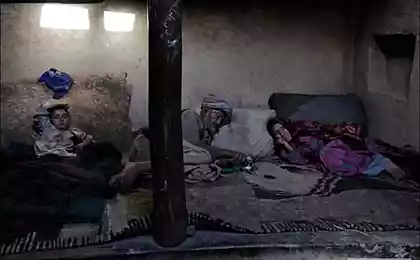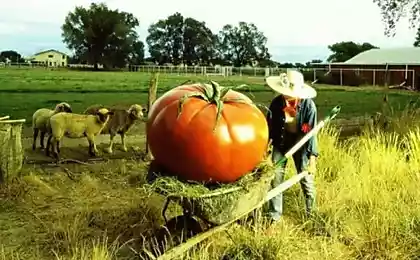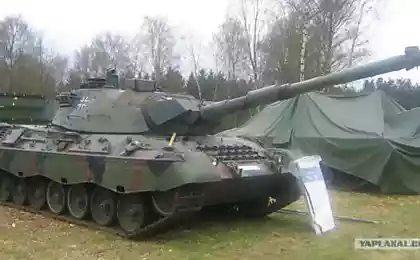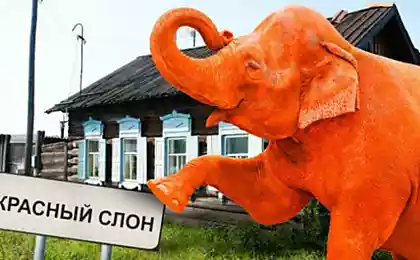1392
Russian village with unusual names
In Russia, a great number of small settlements with bizarre and even funny names. As a rule, the names of the villages and the villages battered by the names of geographical objects, surnames are common in this area, nicknames, unusual historical events or curious cases. Names do not always come out euphonious, one only central Russia has about 120 settlements with dissonant names. There have been attempts to get rid of even the most obscene.
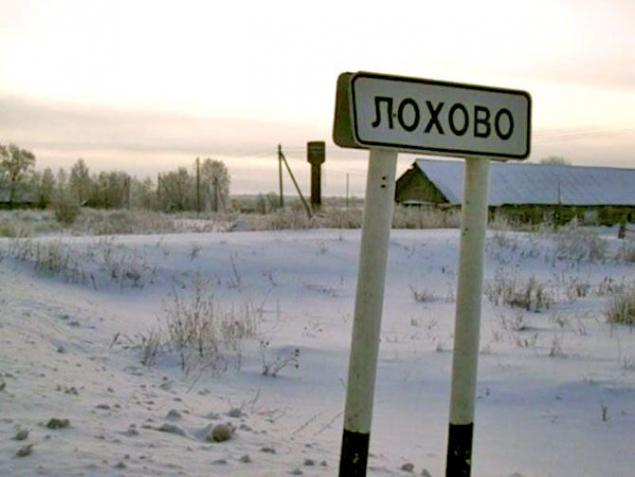
MEAT BOR
Russian village in the Novgorod region in the XVI century, mentioned in the chronicles called Bor. The village fell into disrepair under Ivan the Terrible and was revived only under Peter I during the construction of St. Petersburg. At the same time, and there was an unusual name: the cattle for the builders of the new capital brought by the river Volkhov in Bor, where further distilled in St. Petersburg. On the maps of 1788 the village already listed as Meat Bor. There is also a version that the name came from the forest, pine forest, rich in livestock, surrounding the village. Meat notorious Boron acquired during the Great Patriotic War, when in April 1942 2nd Shock Army of the Volkhov Front had been surrounded near the village, killing and disappeared thousands of Soviet soldiers.
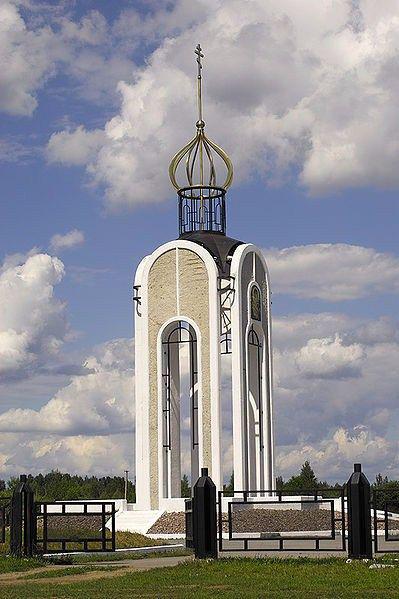
PANCAKE PILE
The village in the Smolensk region with such an unusual name is one of the oldest settlements of Smolensk: There is reason to believe that there Pancake Heaps at this place from the tenth century. At the end of the XIX century, archaeologists discovered in the village on the right bank of the river Iput 46 ancient burial mounds. In old Russian found pottery, bronze bracelets, rings, beads cornelian researchers found that buried in the mounds krivichi - Eastern Slavic nation. And its name, according to legend, the village received during a random visit to Catherine II on the road to the south of Russia. Instead of bread with salt farmers presented her pancakes, large heaps lying on the embroidered towel.
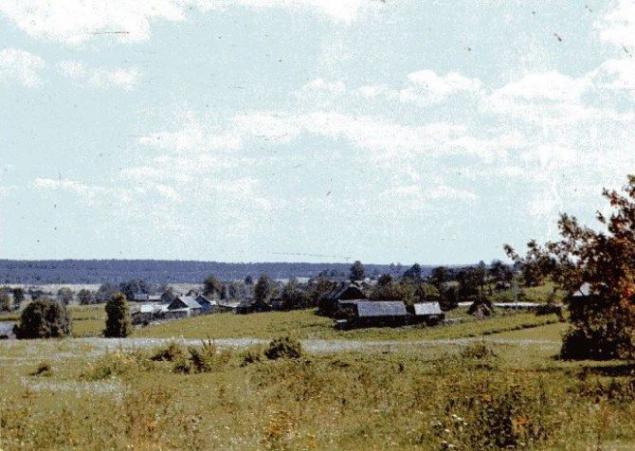
BALDEYKA
Baldeyka is in the region of Udmurtia Kizner River Yamyshke. His village got a funny name from the Tatar word "Bulda", which means "a successful enterprise, a good ending of the case." Over time, the name "Russified" and transformed into Baldeyku.
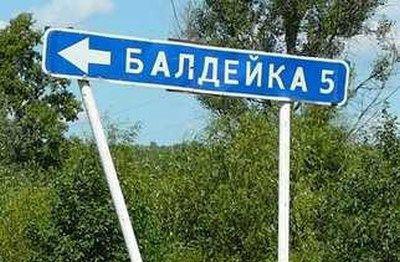
Laughter
Zabaikalskoe laughter village was founded in 1899 as a railway station during the construction of the Trans-Siberian Railway. Before 1900, the station was known as laughter. According to one version, the name comes from the word staroburyatskogo "hogot", which means "birch". The village is surrounded by birch forest really. According to another version, "laughter" is derived from the Buryat word "hokto" meaning "road,
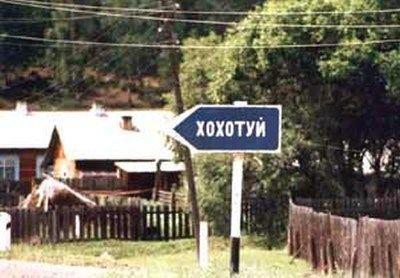
DURNIHA
Versions of why the village Ramenskoye district of Moscow region bears the name a few. On one of them, the village "had called" the Queen Catherine, who was stuck in coach impassable mud. "What a bad place!" - Cried Catherine. According to another version, during floods, when "fooled around" the river, in the village turned out to Peter I. In fact, once this area is famous for blueberries, which the ancient Russian name - durniha. Hence the name.
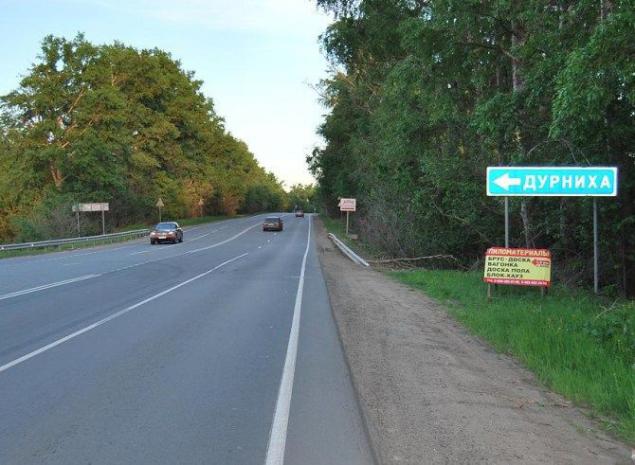
CAT
The village in the north of Samara Region was founded in the XVIII century, but people settled in its territory for a long time. The archaeological finds discovered in the vicinity of the village date back to the middle of the II millennium BC. e. And in 1987, it was found with the remains of mounds leaders of Indo-European agricultural tribes. It is home to the Sarmatians, Huns, Khazars, Bulgars, Bashkirs, and the Hungarians, and the XIII century - the Mongols and Cumans. At the heart of the village name is Cat Turkic word "Kosh", which means "bald hill." Among the residents of the village common as other versions of the names "cat" as a river shoal as North Russian word "cat" was used to refer to sandy or rocky river shoals, an instrument of torture or nickname of the first settler. However, the emblem of the village illustrates a silver cat standing on its hind legs on a red field.
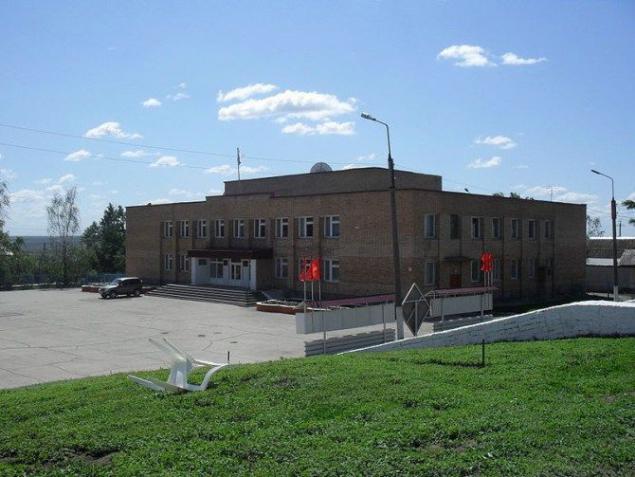
Swell
Swell village located in the Volgograd region 12 kilometers north of the border with the Republic of Kalmykia on the shores of the lake. According to one version, the daughter of Prince Kalmyk bathed in the lake began to sink, and hit the water with his hands. People who are close by, the Kalmyks, shouted: "Swell, swell!" ("Hands, hands!"). According to another version, very young girl named Swell. According to local historians, the most plausible version of the origin of the name Tsatsà - Kalmyk translation of the word "Buddhist chapel».
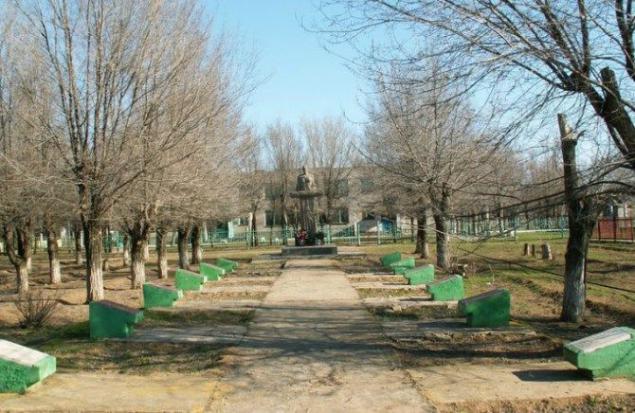
Again, great
The village with a cheerful name is in the Ryazan region. According to local ethnographers, such an unusual name the village was due to the fact that earlier was the only inhabited place in the district. That's why people come back here again and again, hello. According to another legend, in this place ever met two landowners whose estates were near. They greeted the morning and again in the evening greeted. The name was assigned to the village so that all attempts to rename the village fails.
Interestingly, near the village located sooner town called Pancakes eaten. According to local legend, once betrothed boy from the village. He saw only his bride at the wedding, and then covered with a veil. When it's time to kiss the bride, the groom took the veil and the bride was pockmarked. The groom wanted to refuse to marry, but it was too late, pancakes had already eaten. Now again, great live 200 people, mostly retirees. In the 60 years of the village wanted to call Sukhov, but the name did not stick.
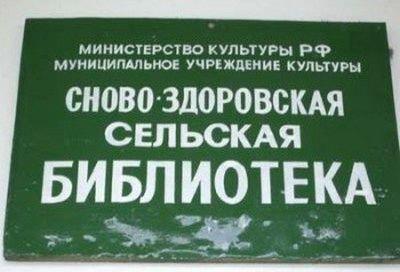
HEADSTOCK
Babka village in the Voronezh region was founded in the XVII century and got its name, according to one version, the river grandmother, who, in turn, was called so by vodivshimsya in these places the women-birds, or pelicans. According to another version, on the banks of the river were the idols of the time, the women of ancient Russia. According to local historians, both versions are believable.
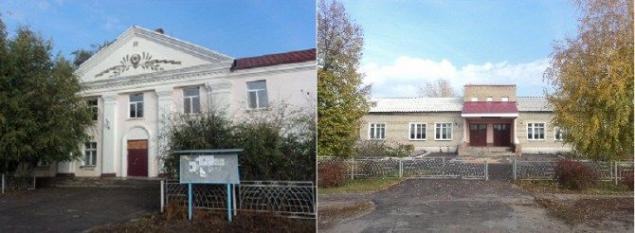
Source:

MEAT BOR
Russian village in the Novgorod region in the XVI century, mentioned in the chronicles called Bor. The village fell into disrepair under Ivan the Terrible and was revived only under Peter I during the construction of St. Petersburg. At the same time, and there was an unusual name: the cattle for the builders of the new capital brought by the river Volkhov in Bor, where further distilled in St. Petersburg. On the maps of 1788 the village already listed as Meat Bor. There is also a version that the name came from the forest, pine forest, rich in livestock, surrounding the village. Meat notorious Boron acquired during the Great Patriotic War, when in April 1942 2nd Shock Army of the Volkhov Front had been surrounded near the village, killing and disappeared thousands of Soviet soldiers.

PANCAKE PILE
The village in the Smolensk region with such an unusual name is one of the oldest settlements of Smolensk: There is reason to believe that there Pancake Heaps at this place from the tenth century. At the end of the XIX century, archaeologists discovered in the village on the right bank of the river Iput 46 ancient burial mounds. In old Russian found pottery, bronze bracelets, rings, beads cornelian researchers found that buried in the mounds krivichi - Eastern Slavic nation. And its name, according to legend, the village received during a random visit to Catherine II on the road to the south of Russia. Instead of bread with salt farmers presented her pancakes, large heaps lying on the embroidered towel.

BALDEYKA
Baldeyka is in the region of Udmurtia Kizner River Yamyshke. His village got a funny name from the Tatar word "Bulda", which means "a successful enterprise, a good ending of the case." Over time, the name "Russified" and transformed into Baldeyku.

Laughter
Zabaikalskoe laughter village was founded in 1899 as a railway station during the construction of the Trans-Siberian Railway. Before 1900, the station was known as laughter. According to one version, the name comes from the word staroburyatskogo "hogot", which means "birch". The village is surrounded by birch forest really. According to another version, "laughter" is derived from the Buryat word "hokto" meaning "road,

DURNIHA
Versions of why the village Ramenskoye district of Moscow region bears the name a few. On one of them, the village "had called" the Queen Catherine, who was stuck in coach impassable mud. "What a bad place!" - Cried Catherine. According to another version, during floods, when "fooled around" the river, in the village turned out to Peter I. In fact, once this area is famous for blueberries, which the ancient Russian name - durniha. Hence the name.

CAT
The village in the north of Samara Region was founded in the XVIII century, but people settled in its territory for a long time. The archaeological finds discovered in the vicinity of the village date back to the middle of the II millennium BC. e. And in 1987, it was found with the remains of mounds leaders of Indo-European agricultural tribes. It is home to the Sarmatians, Huns, Khazars, Bulgars, Bashkirs, and the Hungarians, and the XIII century - the Mongols and Cumans. At the heart of the village name is Cat Turkic word "Kosh", which means "bald hill." Among the residents of the village common as other versions of the names "cat" as a river shoal as North Russian word "cat" was used to refer to sandy or rocky river shoals, an instrument of torture or nickname of the first settler. However, the emblem of the village illustrates a silver cat standing on its hind legs on a red field.

Swell
Swell village located in the Volgograd region 12 kilometers north of the border with the Republic of Kalmykia on the shores of the lake. According to one version, the daughter of Prince Kalmyk bathed in the lake began to sink, and hit the water with his hands. People who are close by, the Kalmyks, shouted: "Swell, swell!" ("Hands, hands!"). According to another version, very young girl named Swell. According to local historians, the most plausible version of the origin of the name Tsatsà - Kalmyk translation of the word "Buddhist chapel».

Again, great
The village with a cheerful name is in the Ryazan region. According to local ethnographers, such an unusual name the village was due to the fact that earlier was the only inhabited place in the district. That's why people come back here again and again, hello. According to another legend, in this place ever met two landowners whose estates were near. They greeted the morning and again in the evening greeted. The name was assigned to the village so that all attempts to rename the village fails.
Interestingly, near the village located sooner town called Pancakes eaten. According to local legend, once betrothed boy from the village. He saw only his bride at the wedding, and then covered with a veil. When it's time to kiss the bride, the groom took the veil and the bride was pockmarked. The groom wanted to refuse to marry, but it was too late, pancakes had already eaten. Now again, great live 200 people, mostly retirees. In the 60 years of the village wanted to call Sukhov, but the name did not stick.

HEADSTOCK
Babka village in the Voronezh region was founded in the XVII century and got its name, according to one version, the river grandmother, who, in turn, was called so by vodivshimsya in these places the women-birds, or pelicans. According to another version, on the banks of the river were the idols of the time, the women of ancient Russia. According to local historians, both versions are believable.

Source:




